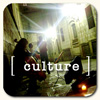
|
MULTILINGUAL SOCIETIES SHOW NEW DYNAMISM 4 July 2003 Both North America and Europe are becoming increasingly mixed societies, drawing from large pools of legal and illegal immigrants, many of whom are migrating to countries whose predominant language they themselves do not speak. The US, for example, is the world's fifth largest Spanish-speaking country, with some 35 to 40 million native speakers. In New York City, more than half of all residents speak a language other than English in their homes.
Historically, the truth about modern democratic societies has been that diversity increases resilience. This has been found to be demonstrably true in the natural world, and has begun to pose a new interpretation of theories of social darwinism. The concept has traditionally been associated with the survival of the fittest, and that alone, but new examinations of the dynamism of multilingual, multi-ethnic societies suggests that such diversity is itself the "fittest" protection against decline. This would mean that a less antagonistic model of social resilience may be ready for deployment. In a broader context, the issue of cultural heritage is vital: the more languages, the more culture, the more traditions and perspectives that are known, and can be studied, tapped, or even tried, the more progressive an open society will become, and therefore the stronger. |
||||||||
|
|||||||||

